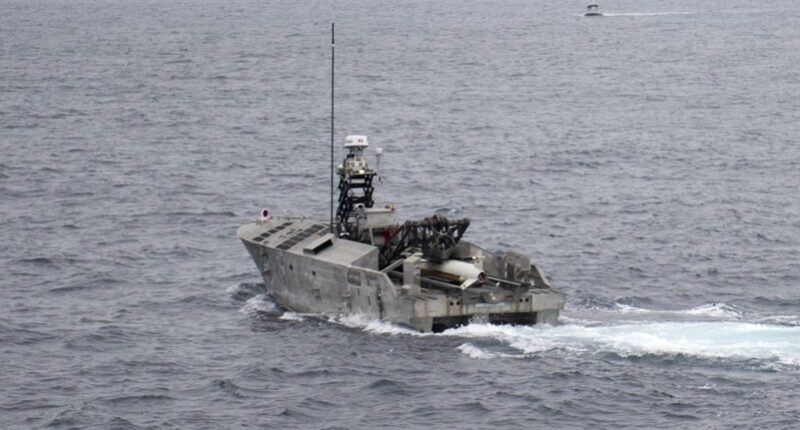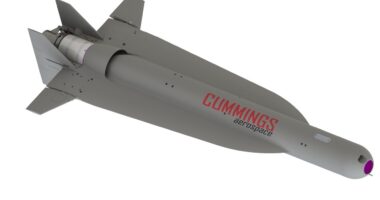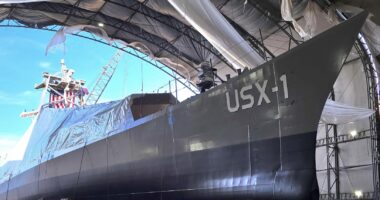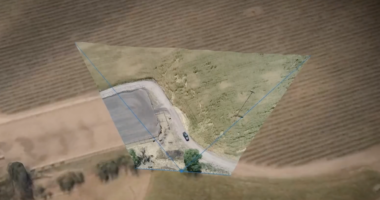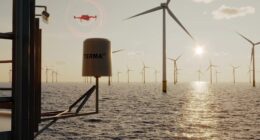The German Navy has invited proposals for sea trials of its Future Combat Surface System (FCSS), a next-gen unmanned surface vessel (USV) concept.
Expected to operate both in conjunction with manned vessels and in swarms of sea drones, the FCSS aims to enhance — and potentially replace — the current fleet of K130 corvettes.
The move comes as Ukrainian marine drones have inflicted heavy losses on a much larger Russian Navy in the Black Sea, underscoring the growing role of unmanned systems.
The US Navy, meanwhile, launched its second unmanned surface vessel squadron last year and is all set to establish another one this year.
Sea Trials
The trials are expected from September 15, 2025, to October 5, 2025, in the Baltic Sea, with each model taking around one week, excluding prep time.
They will assess three broad capabilities of the unmanned platforms: basic operation; situational awareness; and intelligence, surveillance, reconnaissance, and impact.
Effort’s Aims
The trials aim to push unmanned surface vessels to their limits, testing their endurance over long distances in real-world operations.
The focus is on evaluating their ability to operate remotely and autonomously while safely navigating maritime traffic.
Emergency response systems, resupply, repairs, and sea recovery will also be assessed.
A German Navy tender highlighted the potential for integration with maritime battle management systems like SitaWareHQ and the deployment of long-range autonomous effectors.
Expected Features
The test platform must boast a technology readiness level of 9 and initial autonomous operational capability with waypoint navigation.
It must support remote-controlled and emergency operations with minimal crew while featuring active collision avoidance.
Its operational range should be at least 300 nautical miles (556 kilometers/345 miles) at a cruising speed of 38 knots (70 kilometers/44 miles per hour).
Weapons will include a 30mm tube-launched weapon and optional loitering munition or missile.
